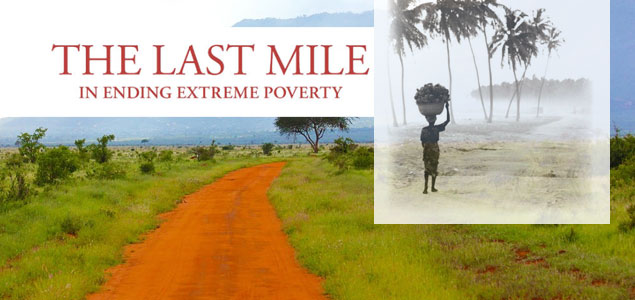 The Brookings Institution’s latest report ought to be of great interest to the Vincentian Family. Our mission, our strategies and our experience can be brought to bear for the analysis of this landmark document, and serve as a partial basis for future collaborative planning.
The Brookings Institution’s latest report ought to be of great interest to the Vincentian Family. Our mission, our strategies and our experience can be brought to bear for the analysis of this landmark document, and serve as a partial basis for future collaborative planning.
Laurence Chandy, Hiroshi Kato, and Homi Kharas have edited a fine volume dedicated to mapping “The Last Mile in Eliminating Extreme Poverty.” We’ve come a long way. Our commitment at the national and international levels is strong. As the Vincentian Family continues its commitment to systemic change strategies and embarks on new journeys of collaboration, our perspectives will clearly be necessary. Why? The authors indicate,
We believe that the end of extreme poverty is achievable, but simply extrapolating from the historical trend of the global poverty rate is problematic. That’s because the global poverty problem— its sources and solutions— is constantly evolving . In other words, the last mile in ending extreme poverty looks different from the miles already traveled . In this book we attempt to explain why— and how the last mile might successfully be completed.
It is this changing reality that we meet and personally and corporately catalog every day. The authors’ analyses proclaim what Vincent, Louise, Frederic, Rosalie and so many other Family visionaries knew,
that ending extreme poverty requires peace, jobs, and resilience. These are issues that have been largely overlooked by so-called development experts and on which cutting-edge knowledge is blunt and for which best-practice solutions feel decidedly underwhelming.
We have so much to contribute to the stated goal of eliminating extreme poverty by 2030. The authors, without saying it explicitly, are asking for our help.
The goals of securing peace, creating jobs, and building resilience have tended to evade straightforward solutions and technocratic learning. As a result, today’s toolkit of strategies and interventions remains inadequate and incomplete. While the proposals presented in this book fall short of providing complete guidance to developing countries and the broader global development community, they begin to address those deficiencies.
This study is required reading at many levels of Vincentian Family leadership. Its conclusions are incomplete. As we plan for the future, can we add to the knowledge and the conversation?
Familiarize yourself with the contents and purchase the study at this online link.
Or, download an overview first.
Learn more about the Brookings Institution here.
Thanks to Ino Rossi for bring this to my attention (and into my Kindle library) on Facebook.







0 Comments